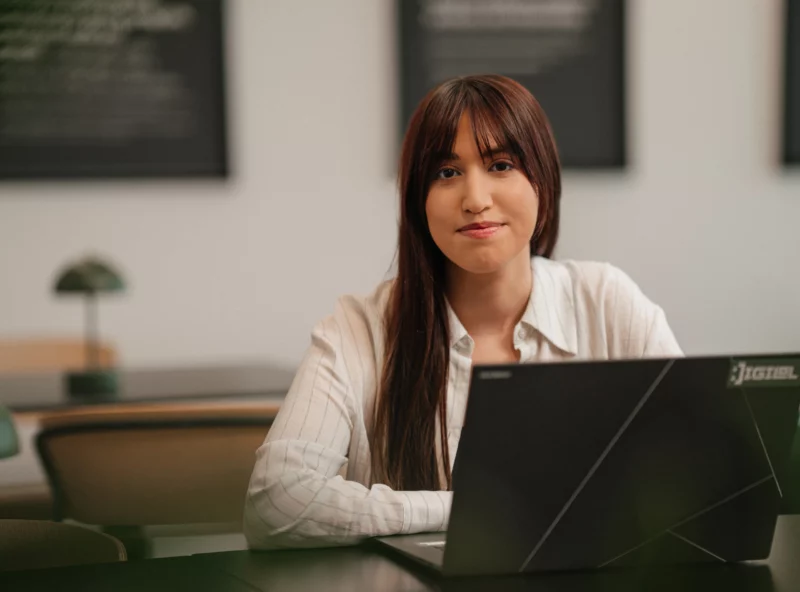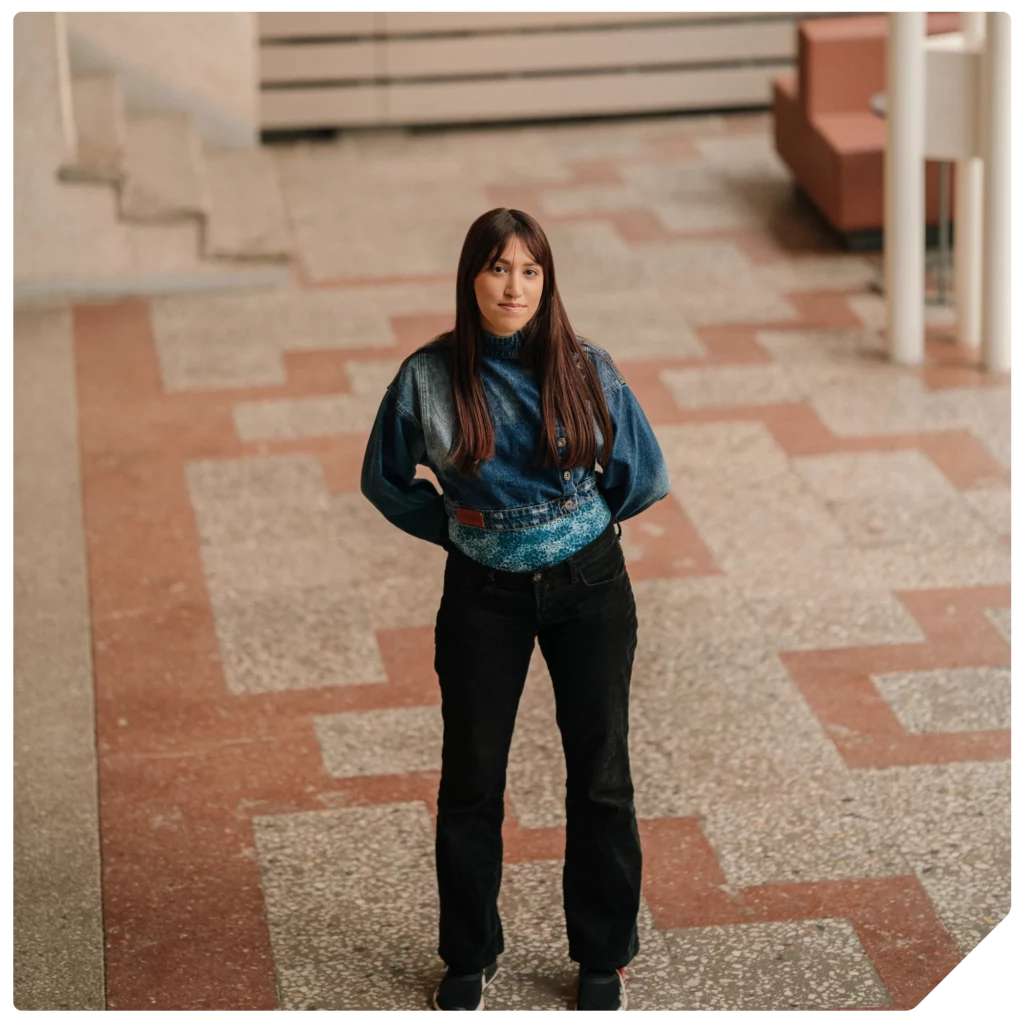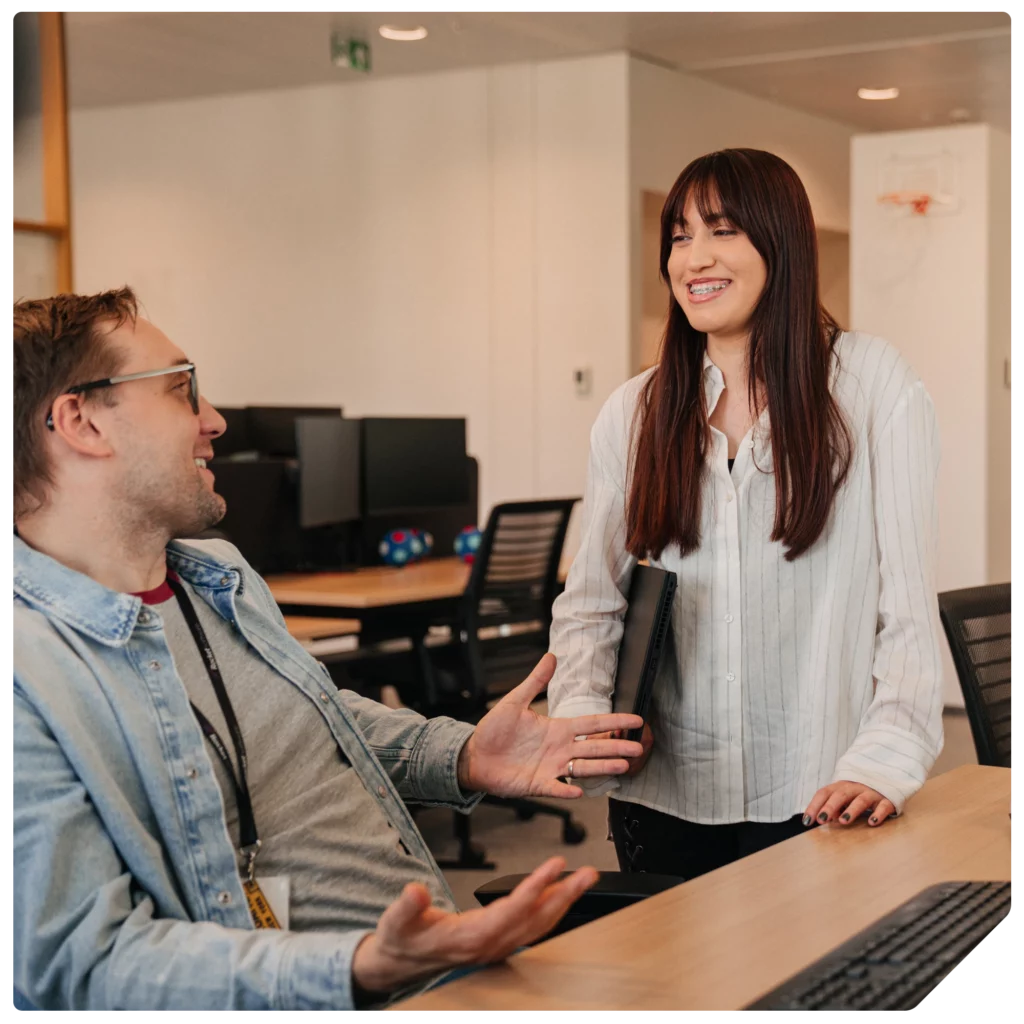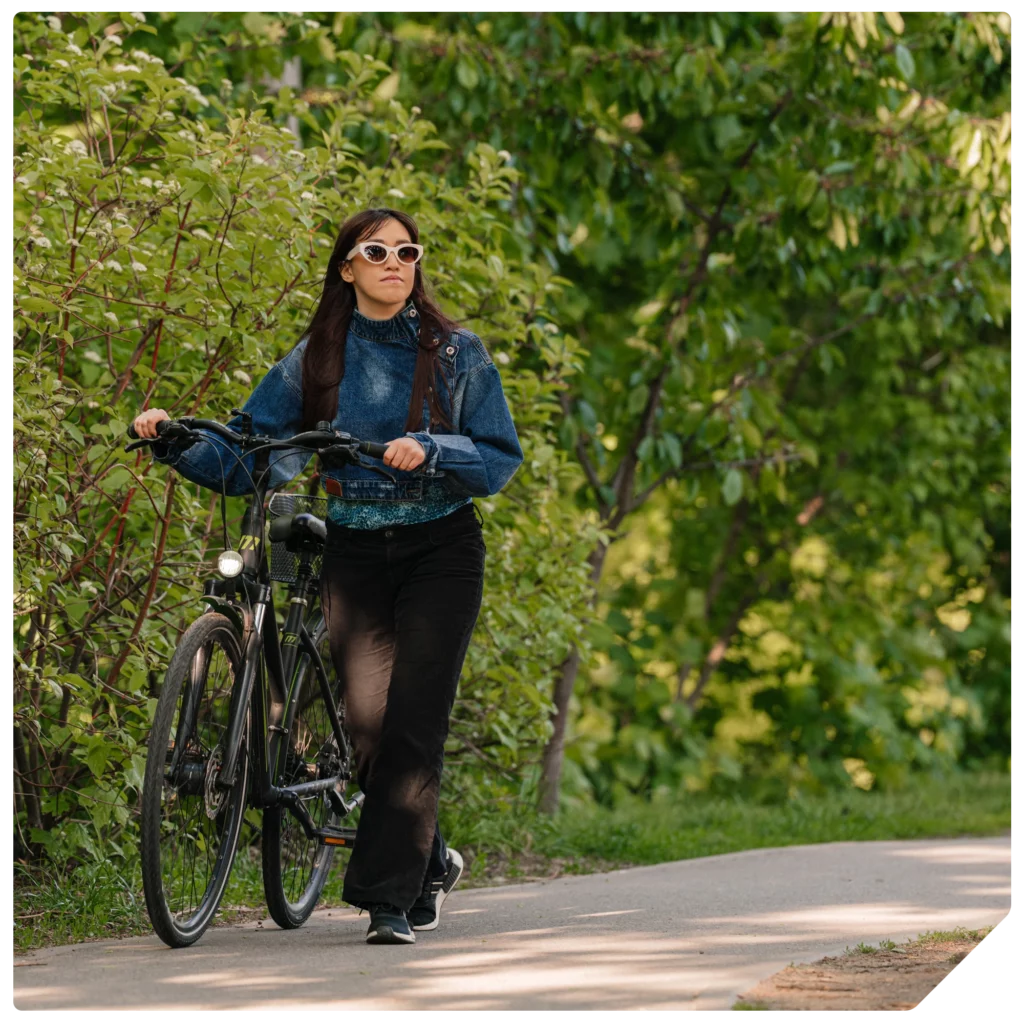- en
İrem Kuyucu
İrem came to Lithuania as a scholarship student at Vilnius Tech, and quickly made her mark. She landed her first tech role while still studying, and now works as a Security Engineer at Rocket Software, leading penetration testing and managing cybersecurity risks. But she didn’t stop there. İrem also launched her own company and started building a name for herself as an artist. Tech-savvy, creative, and always pushing forward, she’s proof that Lithuania is a great place to turn ambition into action.

In Lithuania, people are building cool things all the time – they’re founding companies, building new products.
You initially came here as a student. How did you end up choosing Lithuania?
I was mainly considering going to the US at first, taking out a loan and studying at a community college for two years. But it didn’t seem like that path would lead to the kind of job I was aiming for. After that, I planned to transfer to a university and somehow find the money, but looking back, that plan was extremely risky and probably wouldn’t have worked out.
I had some Lithuanian friends online – we were quite close, and they were applying to universities in Lithuania, and suggested I try there. So I did. I also applied to other universities in Europe, like Sweden, with positive results, but again the situation was kind of difficult, because most of them didn’t offer scholarships to students outside the EU. Then in February of my final year of high school, Vilnius Tech got back to me and offered me a four-year scholarship. I was extremely surprised – but they gave me only a week to decide. I didn’t want to miss the opportunity, so I went for it.
That’s something I would seriously recommend to others looking to study abroad. Lithuania offers great scholarship opportunities, and it’s a good way into the industry – that’s how it worked out for me.

It sounds like you’ve had a deep interest in tech for a while.
Yes, I’ve been involved in coding and hacking for a very long time. Back in Turkey, I was part of an online community of hackers – smart people who worked with code and built various projects, both from Turkey and elsewhere in Europe. Given this has been my main interest for so long, I couldn’t imagine studying anything else.
I’ve been a Linux user since I was about six or seven years old. I remember wanting to play games with my classmates, but I wasn’t using Windows, and the software support for Linux wasn’t great – things would crash, audio wouldn’t work properly. So I started trying to make things work by hacking solutions together. This eventually led to writing game cheats, and from there, everything just spiralled. That’s how I learned programming.
So you could say that in Lithuania, you’ve been able to connect your passion to a real career.
Yes, absolutely.
Could you tell us a little bit about your career journey in Lithuania? How easy was it to transition from your position as Penetration Tester at Surfshark to your current position as Security Engineer at Rocket Software?
I applied to Surfshark during my first semester, and by the start of my second semester I was already working there. Two years later, a new manager came and I decided to leave as we didn’t quite click. But that’s one of the great things about Lithuania – if you have the skills the market is after, you don’t have to sit in a job if it’s not a fit.
After leaving, I took some personal time before seeking another corporate position. Since I was already freelancing, money wasn’t a concern. I spent about a month applying, and within that time, I landed a new job. The process wasn’t too difficult; it just involved going through interviews.

So what do you do now at Rocket Software?
It’s really a continuation of the work I’ve been doing since I was younger. As a Security Engineer at Rocket Software, I search for risks and vulnerabilities in infrastructure. I track remediations and verify them once they’ve been implemented. I also coordinate penetration tests with external providers and perform them myself when needed.
My penetration testing work involves assessing whether systems can be compromised, looking for everything from full system takeover to sensitive data leaks and other vulnerabilities. I have to ensure that the company’s systems are protected, and that the company is compliant with frameworks like NIST.
Have you noticed any differences between the tech ecosystem here and in your home country?
I think there are a lot of companies here that are looking to hire young specialists. The situation is a lot more difficult for young people in Turkey. I’ve heard horror stories of people applying for jobs for years, still living with their families at 25 or 30. It’s a statistic you can look up – in Turkey, people live with their parents until they’re 30. Companies there also focus on odd things, like which university you graduated from – even in tech, where that really shouldn’t matter.
The tech community here is much smaller. For example, I go to JavaScript meetups organised by international companies that have a big presence here, like Wix. Usually it’s the same crowd of people, but that’s fine. I get a community vibe from all this and not a strange, scary corporate environment. People are building cool things all the time – they’re founding companies, building new products. I don’t think it’s as common in Turkey. And as an entrepreneur with my own side business, Digilol, which conducts penetration testing for clients like the US government, it’s great to be surrounded by people with the same drive, attitude, and ambition.

How do you find living in Lithuania? Any tips for tech talent that might be interested in coming here?
What’s kind of cool is that Lithuania offers a great introduction to life in the EU, making it an ideal entry point if you’re looking to study or break into the job market. It’s also easier to come here, bureaucracy-wise, which isn’t the case for some of the other countries in the EU, like Portugal or Belgium. As far as the country itself is concerned, there is a lot of potential for work-life balance, although I myself prefer to work more.

Compared to Turkey, there’s always something happening in Lithuania which is cool to explore. In summer, there are excellent swimming spots, as well as good places for hiking, walking, running, and cycling – there’s a lot of great outdoor activities you can try out. Cycling through the city center is pleasant with nice bike paths. I also appreciate the festive activities like Kaziukas Fair. The art scene isn’t huge, but there are many galleries around. This is a bonus for me, because I enjoy painting in my free time and visiting art exhibitions. And have no complaints about the food scene either – I like hearty Lithuanian dishes, and it’s easy to find diverse cuisines, like Vietnamese or Turkish.
Overall, I’d say you can enjoy a fairly relaxed and fulfilling life in Lithuania if you want to.
The interview was conducted in May 2025.